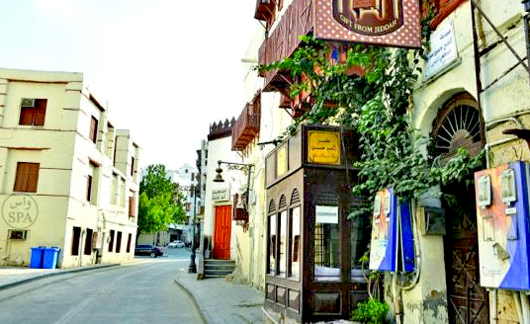Jeddah, Jan 5: According to sources, Jeddah is likely to attract more than 1 million domestic tourists for the Historic Jeddah Festival later this month.

More than 536 families reside in Jeddah’s historical district. The district, which has nearly 1,866 houses and buildings, was declared last year a World Heritage Site by the UNESCO.
Property owners and residents of the district, called Balad, say that the families who live there are not simply residents of the city but have been part of the social fabric, culture and traditions for generations. It is not only the buildings and the infrastructure which makes old Jeddah unique but also the prevailing customs which have been handed down the generations.
Owners have striven to preserve the old customs such as the “Al-Mekaad” which is the meeting point for senior members of households to discuss the district’s needs. The members generally meet up between the Asr and Ishaa prayers to follow up on the issues of families in the area among other things.
Residents of the Al-Yemen neighborhood in the district expressed their gratitude to Custodian of the Two Holy Mosques King Abdullah for developing the area and in delegating efforts to attract more visitors and tourists to learn about the district, particularly through the Historic Jeddah Festival set to launch on Jan. 15.
They said this support has helped showcase the community life in old Jeddah which revolves around customs and centuries-old traditions.
Tariq Pajouh, whose family was involved in the dairy trade, said the history of families living in old Jeddah dates back to over 200 years. He said their history is characterized by many social, political and cultural changes, and has received tremendous attention and support from the country’s leaders over the years.
Abdulaziz Ghurab, whose family worked in the construction industry, said the state has provided a huge amount of support to the historical district, which is valued by property owners and residents. He praised the efforts, programs and projects carried out under the direction of King Abdullah and Jeddah Gov.
Prince Mishaal bin Majed, who is also Chairman of the Supreme Committee for the Historic Jeddah Festival, as well as the Saudi Commission for Tourism and Antiquities, the Jeddah municipality and others.
Jamal Abdul Qadir Pasha said the development of Jeddah’s historical district has had a great impact on the revival of its soul and traditions. He said the Historic Jeddah Festival fosters an atmosphere of cooperation and connection and allows visitors from all over the country and the Gulf to witness the city's heritage.






Comments
Add new comment